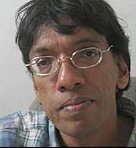
The Sri Lankan government sees in the Indian Prime Minister-elect
Narendra Modi a new opportunity to win India over to its side. President
Rajapaksa has
made sure that he will be off to a flying start with his decision to be
present at the swearing in of the new Indian Prime Minister, who had
tweeted that it was a great pleasure to talk to the Sri Lankan President
when he made his congratulatory call. It is clear that the Sri Lankan
government leadership senses, or believes there is, a resonance with the
new Indian leadership. Indeed, the change of government in India has
opened up the possibility of a new dimension of personal warmth to enter
into the relationship between the two leaders of Sri Lanka and India.
There is every possibility of the personal charisma of President
Rajapaksa, and his closeness to the ethos of the masses of people, to
find resonance in the new Indian Prime Minister.

However,
there is a danger of reading too much into the personal relations
between leaders. Politicians and the general public have a tendency to
prioritise the role of individuals in history. When Russia annexed
Crimea, much of the debate in the international media revolved around
the personal motivations of President Putin. In reality, however,
individual leaders have a limited ability to affect international
relations, which are primarily driven by geopolitical and socio-cultural
forces. President Putin is important no doubt, but only insofar as he
reflects the values and goals of his inner circle, a broader coalition
of the elites that back him, and, no less importantly, the general
population. All parties represented in the Duma (Russian Parliament)
were behind the annexation. In the Duma vote, 445 votes were for the
annexation with only one against. Not only did President Putin’s party,
United Russia, support him, the other three parties, Just Russia, the
Liberal Democrats and even the Communists, were also behind him.

 The Sri Lankan government sees in the Indian Prime Minister-elect Narendra Modi a new opportunity to win India over to its side. President Rajapaksa has
made sure that he will be off to a flying start with his decision to be
present at the swearing in of the new Indian Prime Minister, who had
tweeted that it was a great pleasure to talk to the Sri Lankan President
when he made his congratulatory call. It is clear that the Sri Lankan
government leadership senses, or believes there is, a resonance with the
new Indian leadership. Indeed, the change of government in India has
opened up the possibility of a new dimension of personal warmth to enter
into the relationship between the two leaders of Sri Lanka and India.
There is every possibility of the personal charisma of President
Rajapaksa, and his closeness to the ethos of the masses of people, to
find resonance in the new Indian Prime Minister.
The Sri Lankan government sees in the Indian Prime Minister-elect Narendra Modi a new opportunity to win India over to its side. President Rajapaksa has
made sure that he will be off to a flying start with his decision to be
present at the swearing in of the new Indian Prime Minister, who had
tweeted that it was a great pleasure to talk to the Sri Lankan President
when he made his congratulatory call. It is clear that the Sri Lankan
government leadership senses, or believes there is, a resonance with the
new Indian leadership. Indeed, the change of government in India has
opened up the possibility of a new dimension of personal warmth to enter
into the relationship between the two leaders of Sri Lanka and India.
There is every possibility of the personal charisma of President
Rajapaksa, and his closeness to the ethos of the masses of people, to
find resonance in the new Indian Prime Minister. However,
there is a danger of reading too much into the personal relations
between leaders. Politicians and the general public have a tendency to
prioritise the role of individuals in history. When Russia annexed
Crimea, much of the debate in the international media revolved around
the personal motivations of President Putin. In reality, however,
individual leaders have a limited ability to affect international
relations, which are primarily driven by geopolitical and socio-cultural
forces. President Putin is important no doubt, but only insofar as he
reflects the values and goals of his inner circle, a broader coalition
of the elites that back him, and, no less importantly, the general
population. All parties represented in the Duma (Russian Parliament)
were behind the annexation. In the Duma vote, 445 votes were for the
annexation with only one against. Not only did President Putin’s party,
United Russia, support him, the other three parties, Just Russia, the
Liberal Democrats and even the Communists, were also behind him.
However,
there is a danger of reading too much into the personal relations
between leaders. Politicians and the general public have a tendency to
prioritise the role of individuals in history. When Russia annexed
Crimea, much of the debate in the international media revolved around
the personal motivations of President Putin. In reality, however,
individual leaders have a limited ability to affect international
relations, which are primarily driven by geopolitical and socio-cultural
forces. President Putin is important no doubt, but only insofar as he
reflects the values and goals of his inner circle, a broader coalition
of the elites that back him, and, no less importantly, the general
population. All parties represented in the Duma (Russian Parliament)
were behind the annexation. In the Duma vote, 445 votes were for the
annexation with only one against. Not only did President Putin’s party,
United Russia, support him, the other three parties, Just Russia, the
Liberal Democrats and even the Communists, were also behind him.
